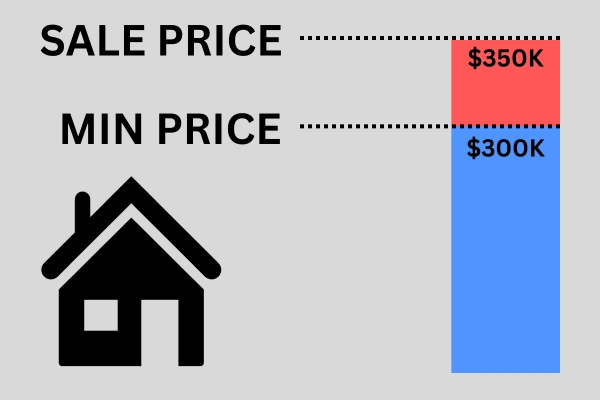
A net listing agreement is a type of real estate contract between seller and seller’s broker. The contract specifies a minimum price for your property, and the broker’s commission is any amount above that price that your broker can sell the property for. For example, if a net listing agreement specifies a minimum price of $300,000, and the property ends up selling for $350,000, then the seller’s broker would earn a $50,000 commission. However, if the property only sells for $310,000, then the seller’s broker would only earn a $10,000 commission.
Net listing agreements are illegal in 47 U.S. states since the the minimum price is usually suggested by the broker, which represents a conflict of interest between the broker and the seller (the broker is incentivized to recommend a lower minimum price in order to earn a higher commission).
There are currently only 3 states where net listing agreements are legal: California, Florida, and Texas. However, even those states legally restrict when net listing agreements can be used. In California and Texas, net listing agreements can only be used if the seller is “sophisticated” in real estate. In Florida, a net listing agreement can only be used if a real estate attorney is representing the seller’s best interests when the agreement is signed.
Furthermore, even if a seller meets the conditions to use a net listing agreement in a state where such agreements are not illegal, the listing broker may not be able to use a net listing agreement if they are a realtor. That’s because the National Association of Realtors (NAR) generally considers net listing agreements to be unethical and restricts realtors’ use of them. That means if a seller wanted to use such an agreement, they would likely have to find a real estate broker who is not a member of NAR (i.e. not a realtor).